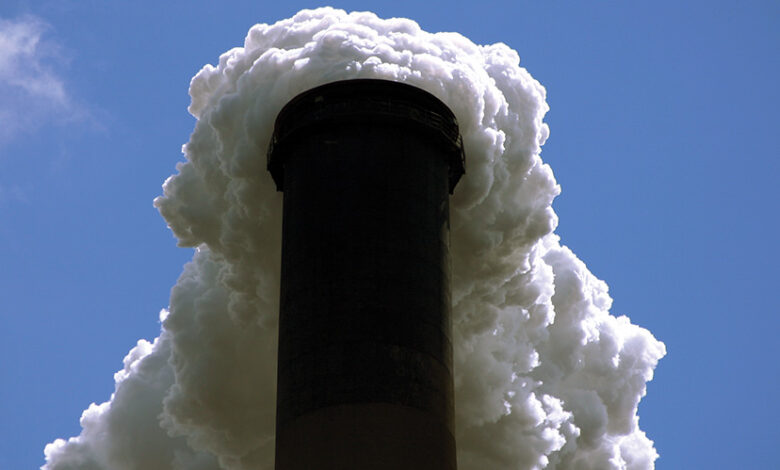CCAC: Ireland falling well short of emissions targets

The Climate Change Advisory Council (CCAC) annual review has found that only two sectors are making ‘good progress’ in the implementation of the National Adaption Framework and the allowances made in the carbon budget.
The report states that carbon budgets can still be met in spite of the failure to meet the targets set by the Government, but that the war in Ukraine and subsequent energy supply crisis means that significant and early action is required which is consistent with a just transition.
Next national adaption framework
The report states that, whilst the National Adaption Framework and sectoral and local adaption strategies provide a solid foundation for new initiatives, that the model which has been used is “no longer sufficient” owing to the marginal, incremental, and procedural process to achieving adaption in the State.
Recommending a revision of the National Adaptation Framework, the report recommends integration with mitigation, sustainable development, and disaster risk reduction. It further recommends that all existing sectoral adaption plans should be revised and updated with additional plans required for sectors such as financial services, tourism and sport, and the built environment, as well as urgent attention needed for coastal resilience.
CCAC further outlines that the National Adaption Framework and plans under it should be informed by regular national risk assessment and clearly prioritise actions and investments. It further states that decision-makers in the Government and the Civil Service need to better supported in adaption planning, including by providing adequate financial support for planning on a sustained basis.
“Adaption governance structures will also need to be revised and restructured to ensure cross-cutting issues that go across multiple sectors are addressed,” the report states. It further outlines that more meaningful leadership and coordination across government on climate adaption action are required, calling on the Government to “urgently set forth and then monitor a set of national resilience indicators” to measure the State’s climate resilience and assess progress towards achieving climate resistant development.
For the next National Adaption Framework, the report states that it is critical for an initial adaption budget to be set for 2030, which will follow an assessment of what is required to make the State climate resilient by 2030. “This budget must be determined in light of the social cost of climate change over a least the next 30 years and must reflect the need to prioritise funding for adaption to a significantly greater degree than is currently the case.”
Implementation gap
The report reiterates the concerns raised in the 2021 review, namely that climate ambitions are not being matched by verifiable actions.
Ireland failed to meet its 2020 target of a 20 per cent reduction in greenhouse gas emissions and has thus been forced to use allowances purchased from other member states who exceeded their targets. This failure is further exacerbated by the fact that many heavy-polluting sectors, such as transport, were inoperative for a large proportion of 2020 due to the Covid-19 lockdowns which took place that year.
“EPA emissions projections suggest that Ireland could meet its no-ETS EU targets of a 30 per cent emissions reduction by 2030, assuming full implementation of planned policies and measures and the use of the flexibles available,” the report states. However, it expresses concerns that the provisional non-ETS emissions in 2021 are 46.2 MtCO2eq, which is above the annual emissions target of 43.5 MtCO2eq. The Fit for 55 package, currently being negotiated, will further increase the emissions ambitions for the EU and this will have to be accounted for at Government level.
The report states that achieving compliance with national and EU targets will require a significant acceleration in the planning of new measures and full and rapid implementation of the measures already announced will be necessary to achieve these goals.
The report additionally outlines delays to delivery which form a core part of the implementation gap, namely the delays in the implementation of the Climate Action Plan.
It continues: “Ireland is one of only four EU member states not to have submitted a long-term climate strategy. Other high impact measures, which have been delayed, include the development of a roadmap to promote higher use of low-carbon materials in construction and examining how and when fossil fuel heating systems can be phased out of public buildings.”
CCAC calls for the continuation of the quarterly reports on the progress of the Climate Action Plan, stating that it provided some analysis of the main reasons for the implementation delay, adding that “it is clear that adequate resourcing is at the root of many of these issues”.
It further calls for the next Climate Action Plan to place increased focus on defining the details of planned implementation pathways and identification of further measures across all sectors.
The report concludes by stating that the carbon budgets are useful in that they set clear targets and ensures that the Government can be accountable for the implementation of the emissions frameworks, but that a greater level of urgency on achieving these goals is needed, and that it would have the additional benefit of making Ireland energy secure.





